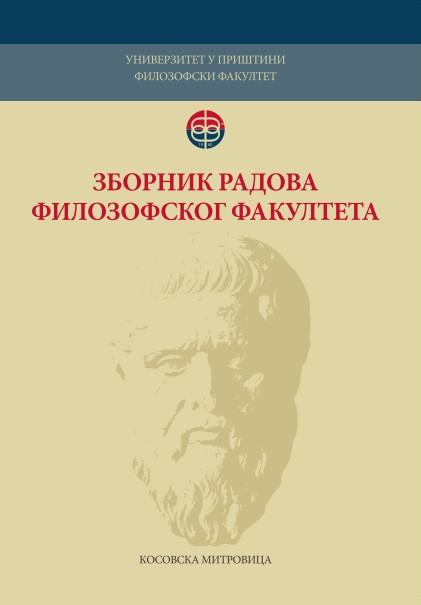Базичне особине личности код пацијената са инфарктом миокарда
Basic Personality Traits in Patients with Myocardial Infarction
Author(s): Jelena Subotić-Krivokapić, Dušan J. Ranđelović, Srećko PotićSubject(s): Social Sciences, Psychology
Published by: Филозофски факултет, Универзитет у Приштини
Keywords: basic personality traits; myocardial infarction; autonomic nervous system; NEO-PI-R; heart rate variability.
Summary/Abstract: On the topic of cardiovascular diseases, textbooks usually list a psychogenic factor as one of the last risk factors, and it is defined quite vaguely and differently as stress, trauma or personality traits. The five-factor model of personality that we used in our research belongs to the field of psychology that deals with the basic structure—basic personality traits. Basic personality traits are understood as non-cognitive, time-stable and, in relation to the characteristics of the sample, invariant dispositional constructs that can explain most of the variance of individual differences. The main goal of the study is to relate heart rate variability (HRV) parameters with comprehensively described personality functioning thru NEO-PI-R inventory. Sample consists of 95 persons (65 males and 32 females) with non-fatal cardiac arrest (age between 35 and 60). HRV and personality measurements were done during their hospital treatment. Personality dimensions were measured by NEO-PI-R inventory and HRV variables were measured by five tests for cardio-vascular reflexes by Ewing and Clark and by Holter monitoring. Our results indicate that there are statistically significant correlations between Openness as psychological variable on one side, and different parameters of functioning of autonomic nervous system, measured indirectly thru HRV variables, on the other side. In our study product-moment correlation analysis was employed between personality and HRV variables and canonical analysis of covariance between linear composites extracted in two sets of variables (HRV and personality) was employed. Three statistically significant correlations were obtained. The first correlation reveals that absence of Openness is related to parameters indicating good functioning of sympathetic function. The second correlation reflects the relationship between elevated Neuroticism with good functioning of vagal segment of autonomic nervous system which is followed by slight unitability of sympathetic function registered by EKG analysis. Third correlation indicated that Extrovert persons has tendency of good sympathetic functioning which is followed by slight vagal dysfunction measured by short term analysis. There is not only one, but several mechanisms through which the connection be-tween the functioning of the basic structure of personality and ANS is realized. This means that the influence of the basic structure on the ANS is not unambiguous, and that, as we have said, it is realized through different mechanisms.Overcoming opposite theoretical orientations through an integral and multidisciplinary approach to coronary heart disease is becoming topical. It is emphasized that research should include equally variables of biological, psychological, and sociological order. Also, in accordance with this type of research, it insists on a modern methodology that will include multivariate designs, adequate multidimensional techniques, controlled samples and variables and precise statistical methods. It is believed that in this way, some of the controversial issues in this area will be resolved, such as: the share and mechanisms of action of psychological factors in the chain in which emotions and physical illness intertwine and continue on each other. We hope that this paper is one in this direction.
Journal: Зборник радова Филозофског факултета у Приштини
- Issue Year: 51/2021
- Issue No: 2
- Page Range: 273-293
- Page Count: 21
- Language: Serbian

